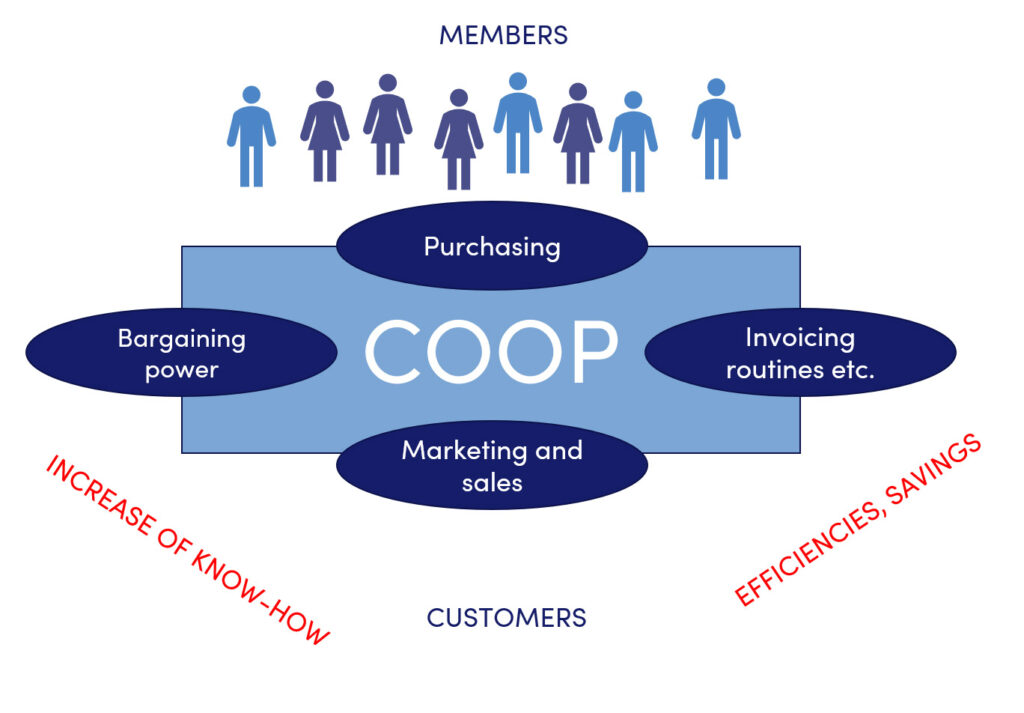When founding an enterprise, you need to consider thoroughly the most suitable legal form. A cooperative can be an interesting option if there are several incorporators.
The purpose of a cooperative is to bring benefits to its members, and these advantages result from the use of the services provided by the cooperative to its members. The following figure illustrates whether a cooperative could be the most suitable alternative:

Marketing and sales are the most common reasons for founding a cooperative. The idea is that the cooperative will function as a marketing and sales channel for its members’ work, service or products. This division of functions allows the cooperative to manage customer relations in a centralized manner. For a customer, the advantage comes from the fact that the cooperative is more interesting and on many occasion also a more credible partner than its individual members. The customer may also appreciate the possibility to do business with one single entity. From the members’ point of view, the cooperative can offer better resources, “broader shoulders”, to take care of the marketing and sales as professionally as possible. This includes information technology and systems, communications, social media and general business management.
Procurement means buying products and services for a company. In a cooperative, raw materials, intermediate manufacture, finished products, services or infrastructure can be acquired centrally, which has clear advantages, when it comes to prices, security of supply or, say, better supply channels.
Negotiation power is an important concept while discussing with larger customers. The negotiation power of a cooperative results from the fact that, as a seller, it can offer a more voluminous whole than its members individually. This mere fact can be decisive for the customer’s choice of the cooperative as a partner. Furthermore, the bargaining power of the cooperative can improve its price-setting possibilities or other contractual terms. When the cooperative is a buyer, it can negotiate more generous conditions and terms than any single member.
Invoicing and other routines are examples of administrative support a cooperative can provide to its members. This can lead to cost benefits, as the services are taken care of centrally for all members. The members benefit from the fact that the cooperative has improved resources to offer services any single member could not provide for at all.
In summary, we can consider that a cooperative may give rise to 1) cost benefits and savings, plus 2) an increase in know-how.